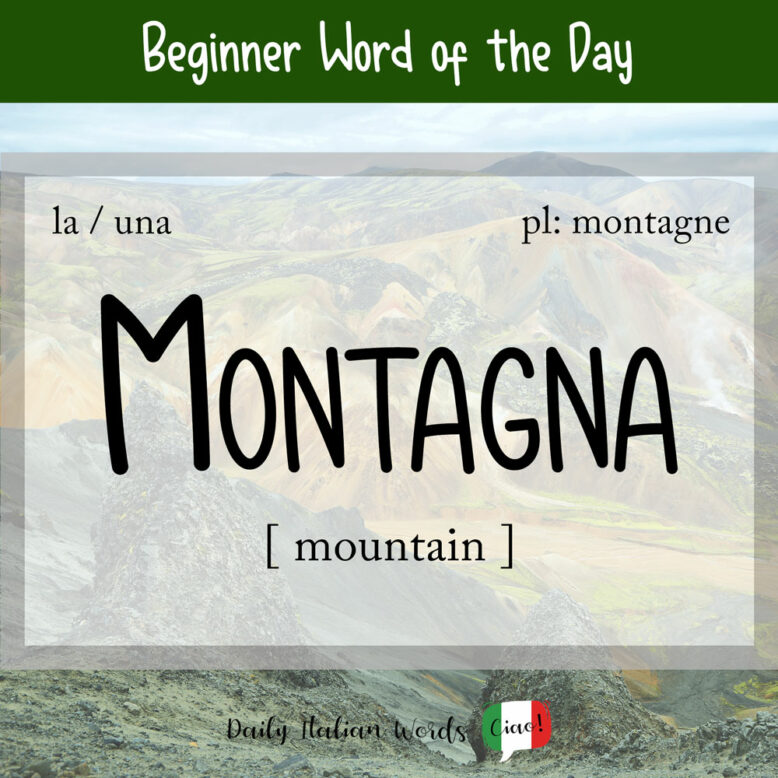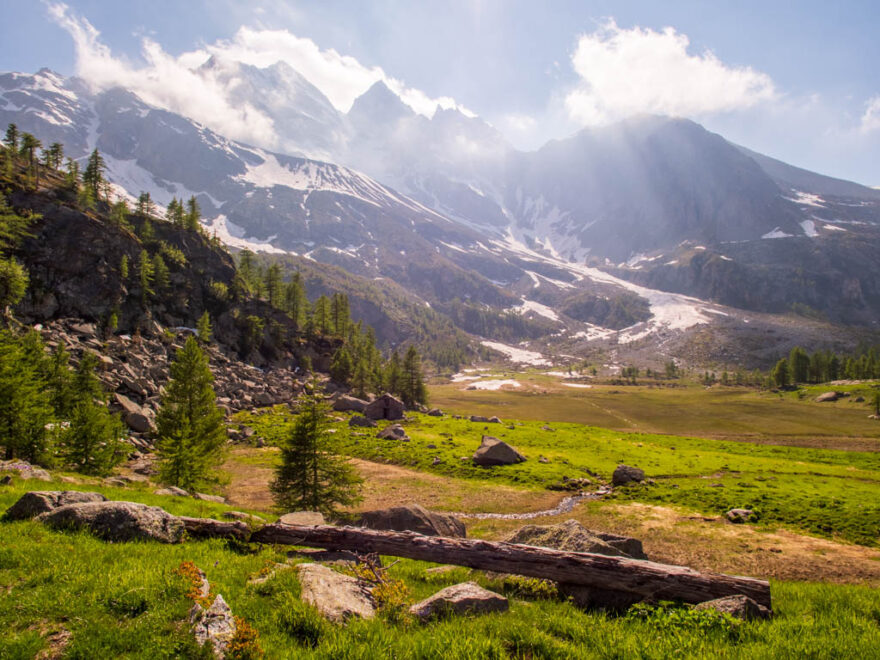When I moved to Italy to become an au pair in 2008, I decided that instead of flying from London to Turin, I’d take the train. Despite lasting nearly nine hours, the journey was fantastic thanks to the views of the French countryside and the Italian Alps, one of the most stunning mountain ranges I’ve ever seen.
The word for mountain in Italian is montagna (feminine, plural: montagne).

Italy boasts three important mountain ranges: the Alps and the Dolomites in the north and the Apennines mountains along most parts of the peninsula. The Alps are home to Monte Bianco, the highest peak in Western Europe.
Il Monte Bianco è la montagna più alta dell’Europa occidentale.
Mont Blanc is the highest mountain in Western Europe.
The singular montagna can also be used to refer to the mountains if you are referring to a mountainous area.
Mia zia ha una casa in montagna.
My aunt has a house in the mountains.
To climb a mountain translates as scalare una montagna or arrampicarsi su una montagna whereas walking in the mountains translates as camminare in montagna or passeggiare in montagna.
Fare un’escursione or escursionismo are the more technical terms for a hiking activity.
Mi piace passeggiare in montagna ma non sono abbastanza in forma per scalarne una.
I like walking in the mountains but I’m not fit enough to climb one.

Some useful words and expressions containing montagna include:
- mal di montagna = altitude sickness
- ai piedi della montagna = at the foot of the mountain
- in alta montagna = high up in the mountains
- pendio di una montagna = mountain slope
As in English, you can use the word montagna in a figurative sense when describing a great quantity of something.
Ho una montagna di lavoro da finire entro domani.
I have a mountain of work to finish by tomorrow.
There is a funny expression in Italian which is La montagna ha partorito un topolino (literally: the mountain brought forth a mouse). It is used when you put a great deal of effort into something but have little to show for it.
Finally, if you visit an amusement park, you’ll probably want to go for a ride on the rollercoasters, which are known as the montagne russe (Russian mountains) in Italy.
Trivia: Montagne russe are so called because they originated in Russia at the end of the 18th century. They were ramps made of wood and ice so that you could descend with a little sledge. A Frenchman exported the idea to Paris, and from there it reached North America. The curious thing is that in Russia, they are called “amerikànskije gòrki”, which means American mountains. And yet, Americans call them rollercoasters!
Heather Broster is a graduate with honours in linguistics from the University of Western Ontario. She is an aspiring polyglot, proficient in English and Italian, as well as Japanese, Welsh, and French to varying degrees of fluency. Originally from Toronto, Heather has resided in various countries, notably Italy for a period of six years. Her primary focus lies in the fields of language acquisition, education, and bilingual instruction.


